#maurizio amadei
Explore tagged Tumblr posts
Text

https://www.instagram.com/elenaeban?igsh=MXVhY3E5ajdwMzR4bg%3D%3D&utm_source=qr
#balenciaga#aya takano#girlblogging#avant garde fashion#commedesgarcon#yohji yamamoto#junya watanabe#takahiro miyashita#jun takahashi#undercover#soloist#ann demeulemeester#rei kawakubo#walter van beirendonck#dirk bikkembergs#macross#maurizio amadei#ma+#marc le bihan#elena dawson#uma wang#guidicommunity#carol christian poell#japanese fashion#japan fashion#2014 nostalgia#i miss 2014#2014 grunge#soft grunge#dark coquette
795 notes
·
View notes
Text



ola.laszkiewicz
47 notes
·
View notes
Text

via _tudo__passa
175 notes
·
View notes
Text
Wearing Time: Carpe Diem and the Artistry of Anti-Fashion (Pt. 1 / 2)

In today's article, I want to tell you something about what I consider the most important and influential artist collective in avant-garde fashion.
A collective whose artists, their labels, and their design language have impressed me so much that it has completely changed my perspective on how clothing is created, what its purpose really is, and the impact it can have.
/// Carpe Diem, an avant-garde designer collective, was founded in 1996 in Perugia, Italy, by Maurizio Altieri. There are conflicting reports on the founding year, with sources mentioning 1994, 1998, and 1999 (the latter mentioned by Maurizio Amadei of M.A+ in a podcast with Lucentement). The visionary minds, particularly Maurizio Altieri, initially specialized in leather design, working with materials such as horsehide, cowhide, and anaconda.

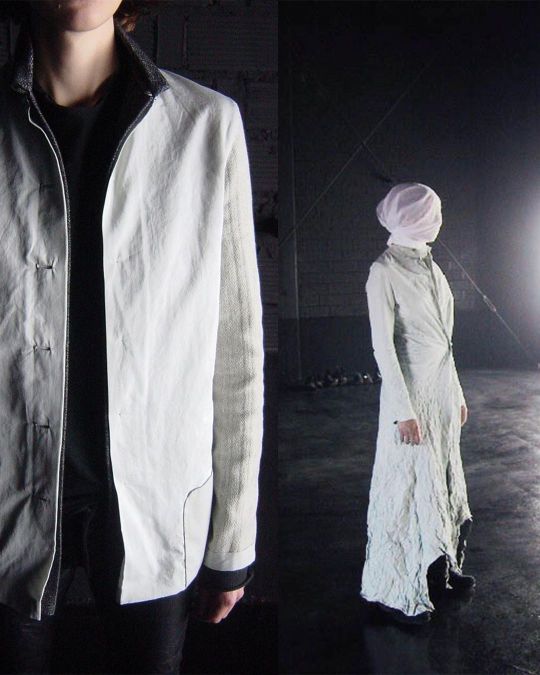
These materials underwent intricate hand treatments, including washing, distressing, crushing, and burial in the ground for months. Carpe Diem quickly established itself as an avant-garde trailblazer, gaining recognition for its commitment to quality and craftsmanship. Originally concentrating on shoes, the brand later expanded its offerings to include clothing.
In 2006, Carpe Diem disbanded due to its increasing mainstream popularity, paving the way for other brands to follow its innovative path. This marked the peak of Carpe Diem's fame, with celebrities like Brad Pitt seen wearing their leather shirts. The surge in investor interest eventually led to Maurizio Altieri abandoning the label.


In recent years, Carpe Diem has been acquired by a Japanese company, resulting in the reissue of some designs and the introduction of new ones. However, signs indicate that Altieri and his colleagues are no longer actively involved in the design process.
Carpe Diem's influence extends to avant-garde brands like Carol Christian Poell, Boris Bidjan Saberi, Layer-0, and others, incorporating designs such as twisted seams, dropped-crotch trousers, asymmetric plackets, and J-cut pants. The brand's collections, including L'Maltieri (knitwear), Sartoria (made-to-measure), and Linea (jackets, pants, and T-shirts), aimed to diversify offerings.
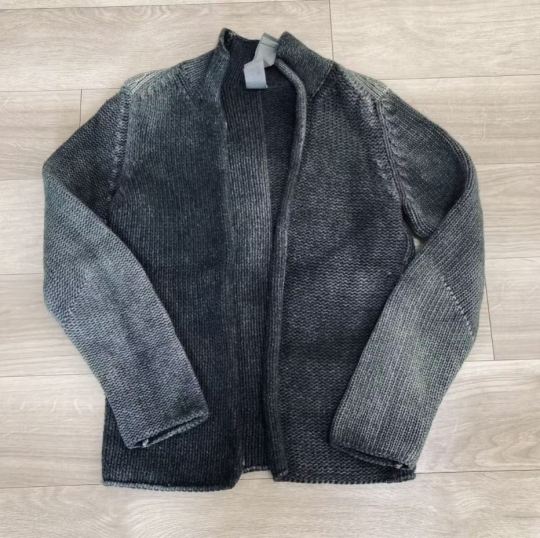
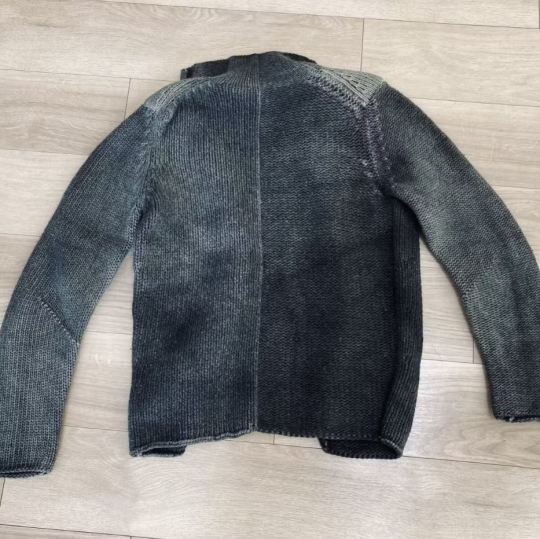
The Linea collection, utilizing a 3x3 modular system, features interchangeable and conceptually connected laser-cut jackets, cotton pants, and T-shirts.

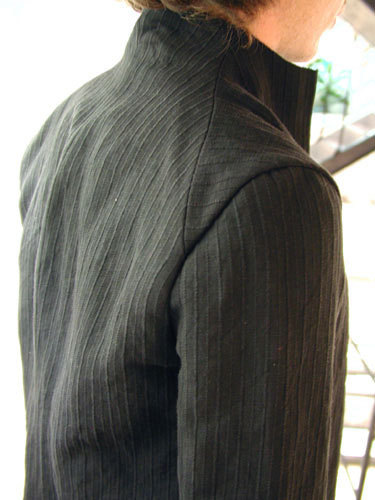
Sartoria, a customized line derived from Linea, maintains the "arte povera" aesthetic with crumpled, washed, and treated leather. Custom items required visits to a Parisian garage for fitting and digital photography, and delivery took 60 days, utilizing leather buried in the deserts of Afghanistan.
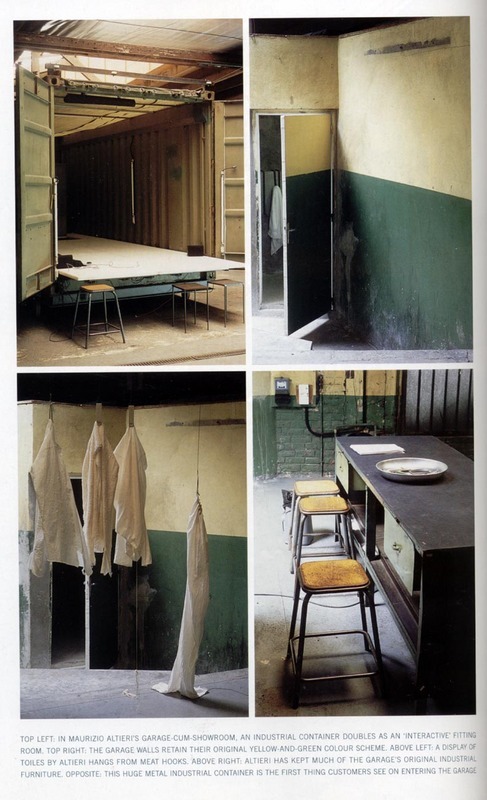
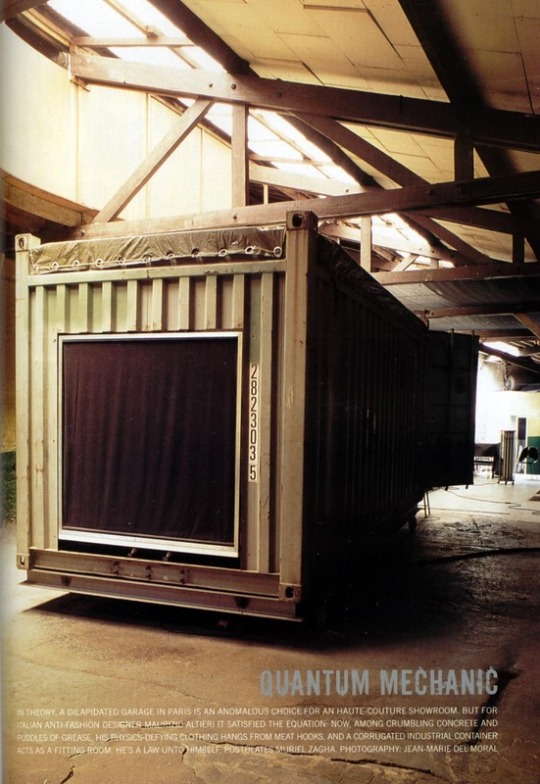
The distinctive feature of hanging garments on meat hooks pays homage to the label's origins as a leather house. The Sartoria line has evolved into the fifth line named Anatomica, propably my favorite collection of Carpe Diem.
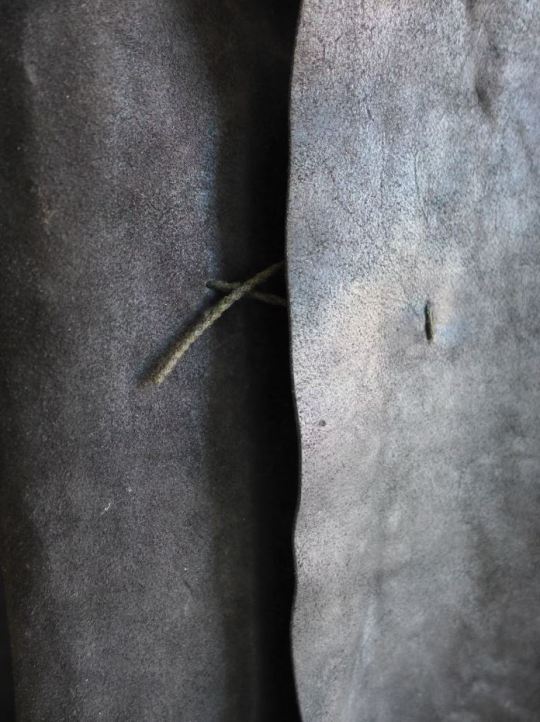
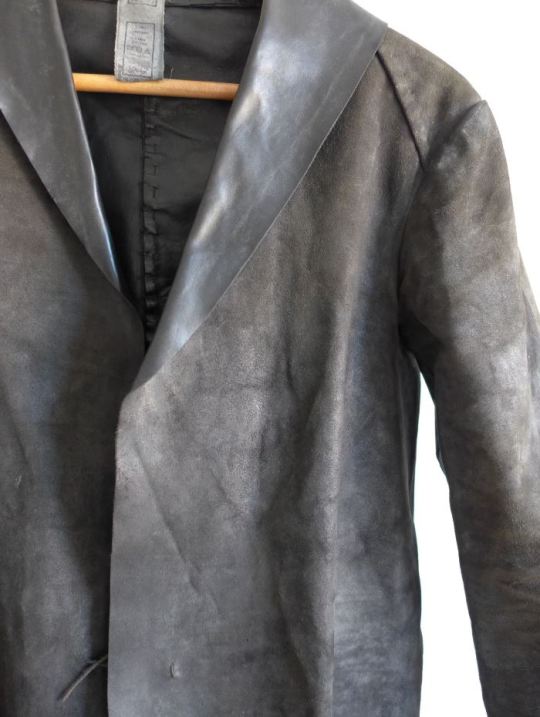
Now, let's introduce the creative minds behind Carpe Diem in detail: Maurizio Altieri Maurizio Altieri, the visionary founder of Carpe Diem, is a perfectionist who brings an academic background in business and law to the world of fashion. His professional journey began at Chrome Hearts, where he honed fundamental skills in craftsmanship and leather treatment. In 1996, Altieri departed from Chrome Hearts to establish Carpe Diem, driven by a philosophy to craft timeless, useful, and handmade pieces from the finest materials.

Altieri's unique approach materialized through the application of distinctive treatments and washes, setting his creations apart. Notably, Maurizio Altieri rejects traditional editorials and advertising, firmly believing that the craftsmanship and quality of his pieces should speak for themselves. This commitment to craftsmanship is vividly demonstrated through a series of collections known as the "Continues Collection," showcasing an enduring dedication to the art of craftsmanship and the creation of timeless fashion experiences. Post-Carpe Diem, Altieri embarked on various projects, including m_moriabc, active in the fashion world since 2012.
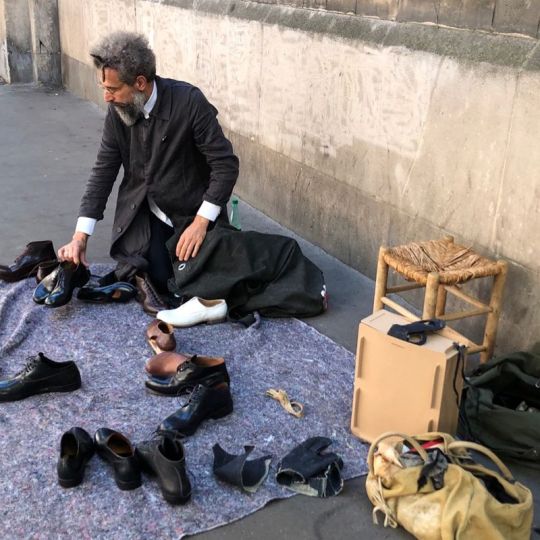
Beyond demonstrating Altieri's exceptional talent for creating memorable brand names, m_moriabc is renowned for its handmade footwear crafted through special Norwegian craftsmanship. Altieri's ambitious pursuit involves capturing the essence of time itself in his creations, symbolized by the names A, B, and C, each representing distinct lines that embody aspects of the past, present, and future.

Avantindietro, launched in 2009, stands out as another notable project, offering a minimalist response to Carpe Diem's initial collection. In a collaborative effort two years later, Altieri partnered with Alessio Zero, the Italian designer behind Layer-O, to produce a small offering of shoes made from leather buried years earlier, adding a fascinating narrative to the creations.
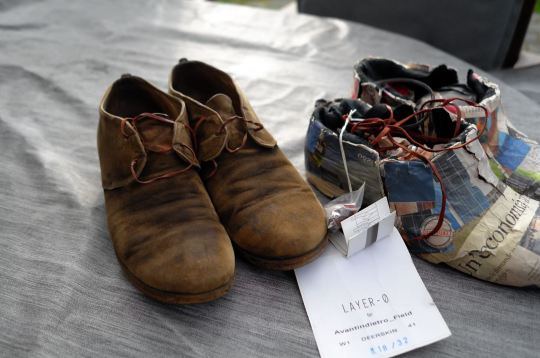
Altieri's current venture, the art project Vnapersona, further underscores his dedication to pushing artistic boundaries. Through these endeavors, Maurizio Altieri continues to leave an indelible mark on the fashion landscape, weaving together elements of time, craftsmanship, and innovation.
Maurizio Amadei Maurizio Amadei played a pivotal role in shaping the distinctive identity of Carpe Diem's leather products, encompassing accessories and jackets. During his tenure as a designer at Carpe Diem, Amadei demonstrated a unique exploration of human anatomy, sculpting pieces to follow the lines of the body's muscles. This innovative approach not only left an indelible mark on his designs at Carpe Diem but continued to influence his subsequent work.
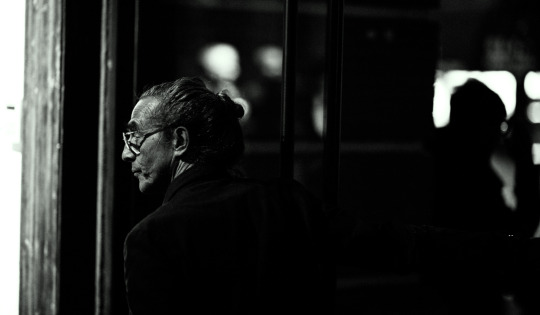
Following the conclusion of Carpe Diem in 2006, Maurizio Amadei founded M.A+ as a spiritual successor to the renowned "Continues Collection." The unmistakable parallels between the two collections are evident in Amadei's inaugural M.A+ collection, where a standout piece was a large shoulder bag crafted from a single seamless piece of leather—a hallmark reminiscent of Carpe Diem. The introduction of the cross motif in this collection became the emblem of Amadei's design ethos, defining sought-after pieces like the 925 Sterling Silver Cross Belt.
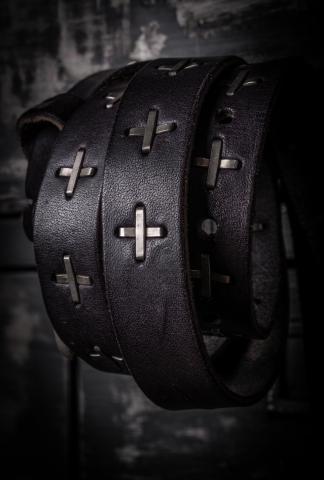

M.A+ seamlessly carried forward many of the distinctive design techniques for leather while integrating cozy cotton fabrics into seamless one-piece silhouettes. Amadei's deliberate use of blunt knives for cutting and processing garment hems serves as a nod to Altieri's design philosophy. The overarching objective was to envelop the wearer in a second skin—an uncomplicated construction that is seamless yet refined.

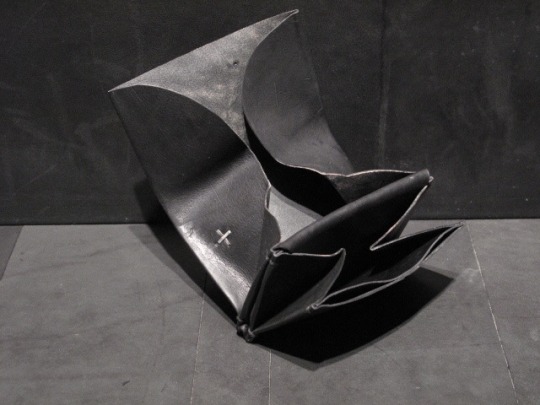
In the present day, M.A+ stands out with flawlessly crafted garments in an array of materials such as silk and satin, garnering significant attention for their luxurious functionality. The allure extends to the patterned garments within the M.A+ collection, complementing the outstanding leather and shoe products. Amadei's design DNA is deeply rooted in principles of simplicity and minimalism, with stitches employed only when necessary. This commitment to minimalism is further emphasized by the absence of tags conveying fabric or size information—a testament to Maurizio Amadei's sophistication and meticulous attention to detail in his designs.

Simone Cecchetto Simone Cecchetto, during his tenure at Carpe Diem, brought an exceptional perspective and creative flair to the realm of shoe and accessory design. Influenced by his background in body art, Cecchetto delved into the "Second Body" project of Sartoria or Anatomica at Carpe Diem, an exploration of the concept of leather as a second skin on the human body.
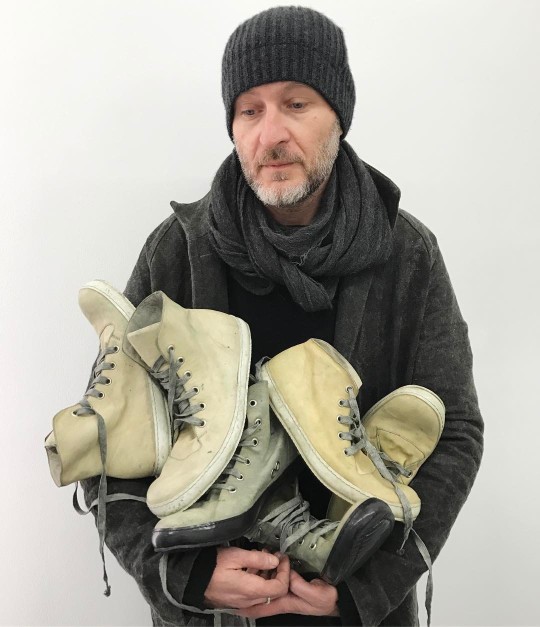
His visionary approach extended to innovative ideas such as integrating chips into leather jumpsuits, enabling the tracking of digital images and movements—a seamless fusion of traditional craftsmanship with modern technological elements.
Despite Maurizio Amadei's primary responsibility for leather goods, Cecchetto collaborated directly with Altieri to optimize their products. Despite lacking formal training as a shoemaker, Cecchetto's deep passion for shaping leather led him to assume the role of footwear design at Carpe Diem, allowing him to preserve the brand's legacy in shoe design.
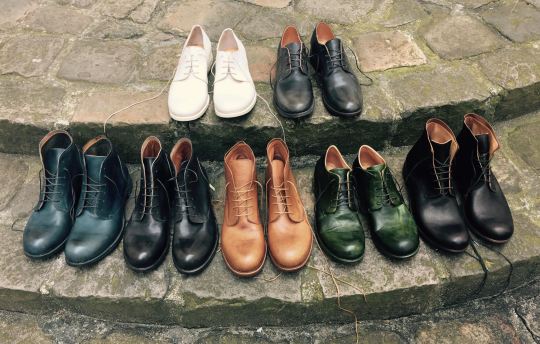
Following the closure of Carpe Diem, Cecchetto sought refuge at Rick Owens briefly, only to realize a misalignment with Owens' avant-garde aesthetic. This experience served as a catalyst for him to chart his own course, resulting in the establishment of his label, Augusta, later renamed A Diciannoveventitre and A1923. The name Augusta pays homage to his grandmother, embodying the brand's principles of simplicity inherited from her. A1923 revolves around the principle of Wabi-Sabi, a Japanese philosophy seeking beauty in natural irregularities.
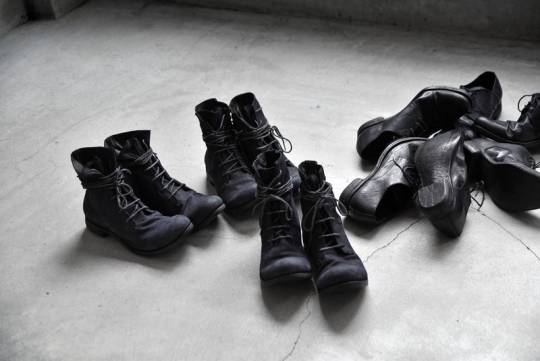
Cecchetto's unwavering dedication is evident in the meticulous sourcing and processing of leather, compensating for his lack of formal training with experimentation and craftsmanship. A1923 stands out with its niche offerings, featuring handmade leather shoes and bags for men. The collection includes distinctive elements such as boots with double zippers and sneaker-boot hybrids, adorned with worn-out laces and intense colors. This testament to Simone Cecchetto's ability to preserve creative integrity while forging his own path underscores his continued contribution to the creation of influential and unique designs.
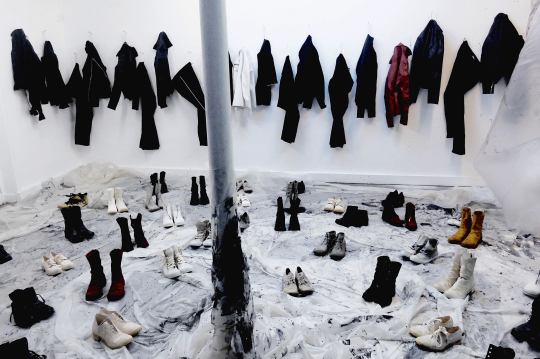
/// Part two is coming in a couple of days!
Davis Jahn
#fashion#art#avant garde#avant garde fashion#artisanal#artisanal fashion#carpe diem#maurizio altieri#ma+#maurizio amadei#simone cecchetto#augusta#a1923#m_moriabc#linea#layer-0#anti fashion#writing#article#philosophy#gothic#leather#leather boots#leather jacket
60 notes
·
View notes
Text


13 notes
·
View notes
Text


daibdhp_
61 notes
·
View notes
Text




M.A+ Reversed Bison Leather Jacket
108 notes
·
View notes
Photo



M.A+ Calf Leather “Embryo” Spiral Bag Iconic bag from M.A+, constructed from one single piece of beautiful, soft and grainy calf leather. Featuring riri zippers with a leather pull strap that covers the entire length of the bag. It has a smaller inside pocket that can be accessed easily without taking the bag off, which is good for wallets, cards, keys, etc.
80 notes
·
View notes
Text
SKINNOSH.COM
#skinnosh#carol christian poell#carolchristianpoell#boris bidjan saberi#paul harnden#maurizio amadei#greg lauren
24 notes
·
View notes
Photo


M.A+ A/W19 Guidi Camel Reverse Leather Biker Jacket in Bordeaux
43 notes
·
View notes
Text

8 notes
·
View notes
Text




dream outfit. archivio skirt and backwards vendor sweater with gloves attached. beautiful.
#mine#archivio#artisanal design#new york#fashion details#styleblogger#fashion#avant garde fashion#commedesgarcon#comme des garcons#comme des garçons#elena dawson#marc le bihan#paul harnden#macross#maurizio amadei#ma+#guidicommunity#junya watanabe#noir kei ninomiya#ann demeulemeester#uma wang#ziggy chen#dries van noten#mm6 maison margiela#martin margiela#margiela archive#maison margiela#rick owens#undercover
59 notes
·
View notes
Text
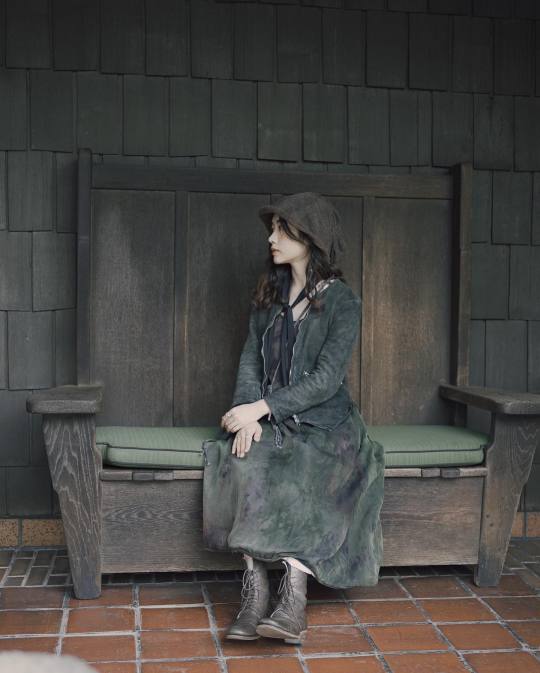
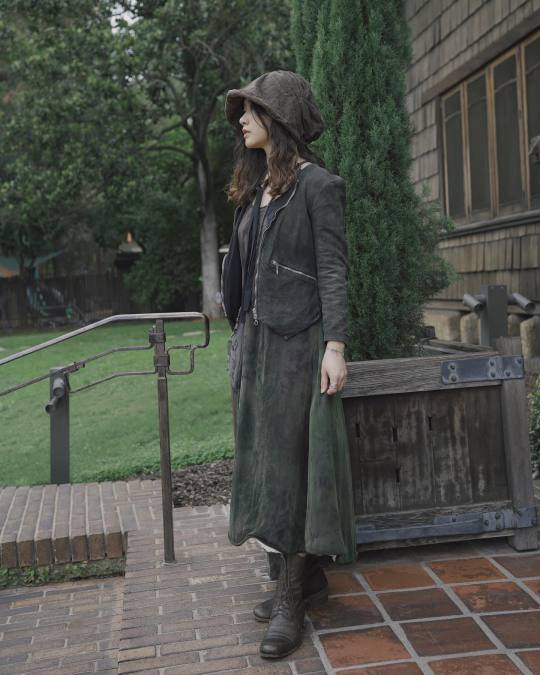
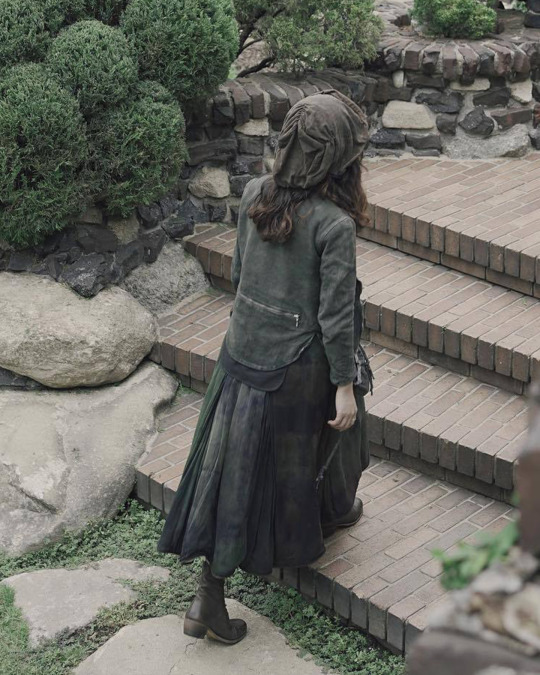
synniell
137 notes
·
View notes
Text

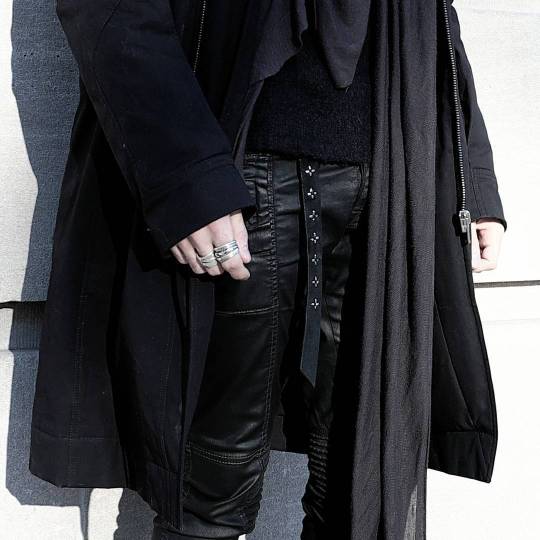
rajivchopra1827
96 notes
·
View notes
Text
Wearing Time: Carpe Diem and the Artistry of Anti-Fashion (Pt. 2 / 2)

Continuing since part one of this article was simply too long.
/// Luca Laurini Luca Laurini, distinguished from his peers Cecchetto and Amadei, directs his focus exclusively on clothing within his label Under Construction, eschewing leather and accessories entirely. Established in 2003, Under Construction stands out as one of the most prominent among the four labels spearheaded by the former Carpe Diem design team. While guided by Altieri at Carpe Diem, Laurini honed his skills in knitwear, and his vision for the craft of knitwear and ready-to-wear fashion crystallized during the creation of L'Maltieri and Linea.
Unfortunately I couldn't find any picture of Laurini himself. More space for his creations!


Carpe Diem's prior emphasis on leather processing provided Laurini with the platform to express his ideas about knitwear and ready-to-wear pieces in a manner that was both disruptive and experimental. Post-Carpe Diem, Laurini founded Under Construction with the explicit intent of challenging conventional perceptions of knitwear. The label's name itself implies that Laurini's collection consists of pieces intentionally designed to appear seemingly unfinished. Employing modern technologies and adopting an architectural approach, Laurini's designs are characterized by modern tailoring and urban minimalism.

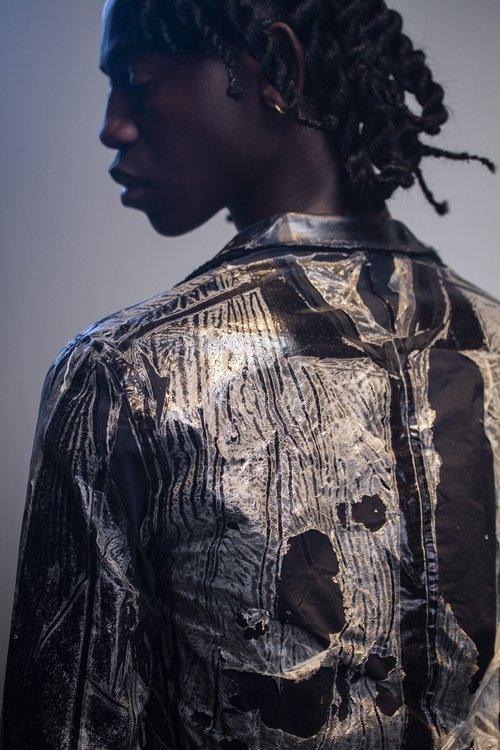
The Under Construction collection spans from unconventional white T-shirts with uneven seams to black button-down shirts featuring non-traditional stitches. It includes tapered pants with flared crotches and gathered ankles. Laurini remains true to his roots, paying homage to Carpe Diem with a long-sleeved shirt adorned with a blue and white print reminiscent of muscle fibers. These garments embody the philosophy of Label Under Construction, marked by the fusion of technology and architecture with a steadfast focus on craftsmanship.
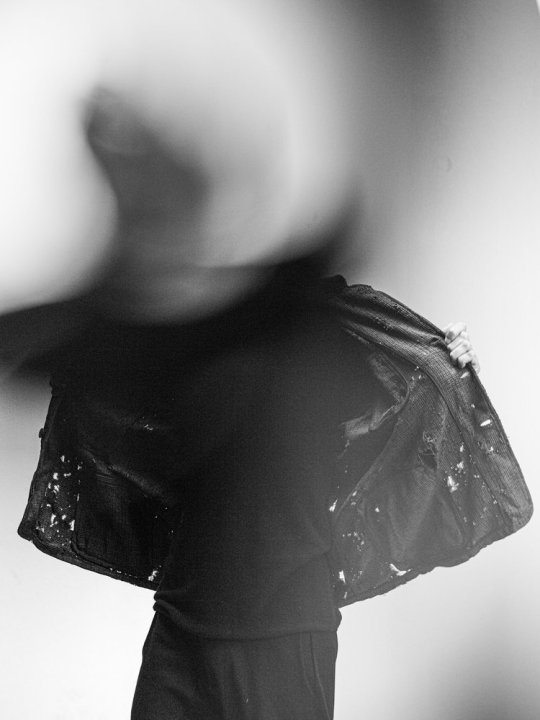
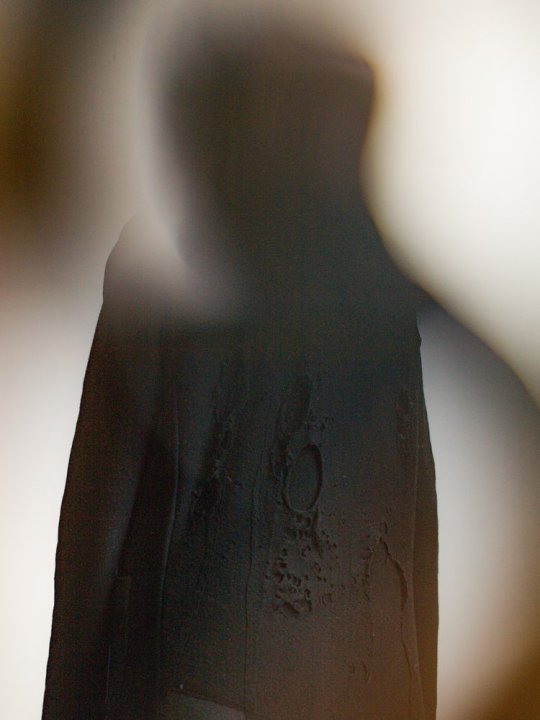
Through his label Under Construction, Luca Laurini demonstrates that, despite the absence of leather and accessories, he has the ability to craft an impressive array of modern and urban clothing pieces. These pieces stand out for their intentional imperfections and artisanal refinement, showcasing Laurini's commitment to pushing the boundaries of conventional fashion norms.
Sara Lanzi Sara Lanzi, perhaps the lesser-known member of the Carpe Diem family, specializes in the transformative art of clothing, driven by her deep appreciation for knitwear. Serving as the steward of the Linea label at Carpe Diem from 1999 to 2003, Lanzi, a former student of contemporary art, sees the human body not merely as a reference point but as an object for "essential and transformative pieces." Her foray into the fashion world commenced with the presentation of her eponymous women's fashion collection in Paris in 2004.

Lanzi's overarching goal is to harmonize aesthetics and functionality, manifested through monochrome pieces with a strong emphasis on versatility. The Fall/Winter collection of 2006 showcased her innovative prowess, featuring garments that could be worn in various ways—a knee-length dress with a scarf serving as a sleeve or an unevenly draped ribbed tank that seamlessly transformed into a sweater with a collar. Another notable creation was Lanzi's A-line velvet dress, radiating monastic elegance from the front yet revealing a seductively transgressive deep back neckline upon closer inspection.

Sara Lanzi's current collections adhere to a similar concept, accentuating the duality of garments with a more subdued look tailored for the "natural woman." Lanzi's designs exemplify her ability to seamlessly unite aesthetics and functionality, highlighting the duality and versatility of clothing as mediums for personal style and self-expression. Despite her relatively lower recognition within the Carpe Diem family, Sara Lanzi has carved out a distinct place in avant-garde fashion through her inventive approach to knitwear and fashion, proving that her creative ingenuity transcends the boundaries of conventional recognition.
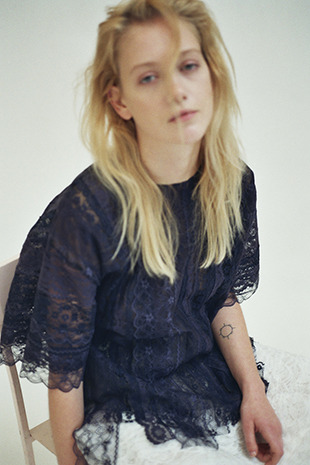
Taichi Murakami (Honorable Mention) Taichi Murakami, the former pattern maker at M.A+ and the founder of his eponymous brand, stands as a prominent figure in the realm of avant-garde fashion. In the mid-2000s, the Gothic clothing movement (here's a brief reference to my blog article "How Post-Punk Influenced Nowadays Fashion") served as a global inspiration for designers, including Rick Owens in North America, and labels such as Julius, Attachment, Devoa, and The Viridi-Anne. While many of these designers share a lineage with Carpe Diem in some way, Taichi Murakami distinguishes himself through his unique and innovative work.

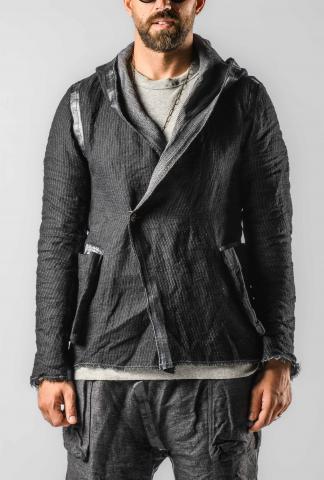
During his studies in Tokyo, Murakami gained experience at Lift, a multi-brand boutique in Daikanyama known for its artisanal brands like Carol Christian Poell and M.A+. Fascinated by Maurizio Amadei's intricate patterns at M.A+, Murakami aspired to work there one day. His goal became a reality after completing his studies when he secured a scholarship to study pattern making in Milan. In 2009, he joined Amadei as a pattern maker at M.A+, where he imbibed a flexible approach to the design process, a departure from the strict Japanese mentality. Amadei's encouragement for Murakami to experiment beyond traditional limits, creating prototypes from various materials, became a formative aspect of his creative journey.

After gaining valuable experience at M.A+, Murakami felt prepared to establish his own fashion line. In 2012, he unveiled his inaugural collection in Tokyo. Murakami identifies more as a clothing developer than a conventional designer, displaying an obsessive commitment to sourcing the right materials before embarking on the design process. With local connections granting him access to adventurous fabric manufacturers, Murakami's refined patterning adapts to the behavior of each fabric, allowing him to shape each piece in unique ways—resulting in garments that are truly one-of-a-kind.
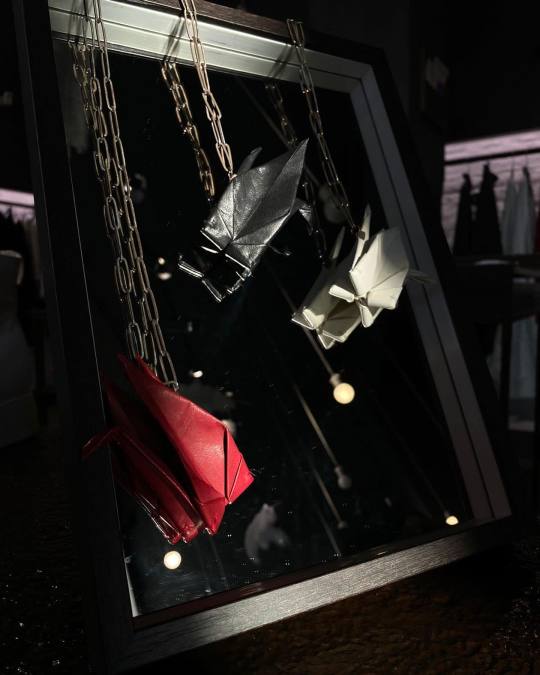
Taichi Murakami's distinctive approach resonates throughout his collections, positioning him as a fitting successor to Altieri and Amadei's design ethos. His work epitomizes a successful fusion of traditional craftsmanship, experimental design, and the freedom to challenge established norms, marking him as a trailblazer in the avant-garde fashion landscape.
///

Carpe Diem's indelible mark on artisanal fashion stands as a testament to Altieri's visionary leadership and the collective creativity of its members. Despite the surging interest in artisanal avant-garde fashion, the prospect of a Carpe Diem resurgence remains uncertain. Nevertheless, the dissolution of Carpe Diem has not dimmed the creative fervor of its members. Each, including Altieri with his "Vnapersona" project, ventures beyond the realm of fashion, infusing art into their pursuits.
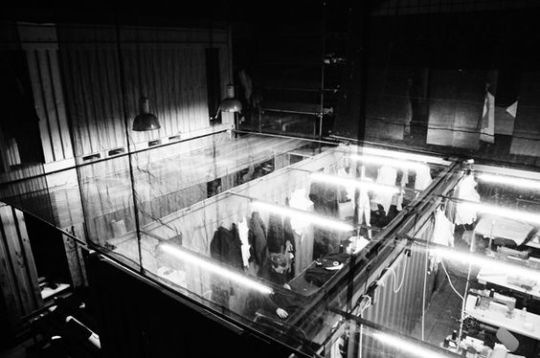
Altieri, Amadei, Cecchetto, Laurini, and Lanzi have not only pioneered avant-garde fashion but have also left an enduring legacy, fostering a continued influence embraced by various labels and designers. Their artistic imprints endure, evident in contemporary collections two decades later. The Carpe Diem collective remains a pivotal milestone in the annals of artisanal fashion, its impact echoing through time. As we look to the future, the anticipation lingers for potential developments and projects from Altieri and his colleagues, underscoring their perpetual influence on the ever-evolving landscape of creative expression.
Davis Jahn
#fashion#art#avant garde#avant garde fashion#artisanal#artisanal fashion#carpe diem#maurizio altieri#ma+#maurizio amadei#simone cecchetto#augusta#a1923#m_moriabc#linea#layer-0#anti fashion#writing#article#philosophy#gothic#leather#leather boots#leather garments#leather jacket#garment#taichi murakami#sara lanzi#luca laurini#labelunderconstruction
43 notes
·
View notes
Text


stuff in my bag
5 notes
·
View notes